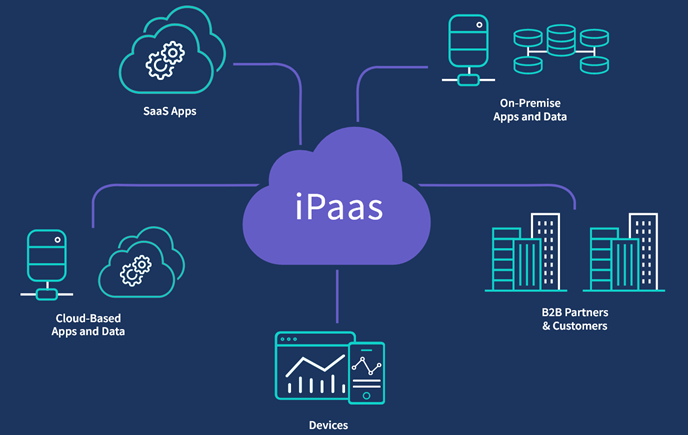Abstract
This article explores the intersection of agile development practices and Integration Platform-as-a-Service (iPaaS) facilitated through low-code platforms. By analysing how the agile methodology synergises with the capabilities of low-code iPaaS solutions, this article aims to offer guidance on how organisations can navigate the evolving landscape of data integration.
Introduction
The digital transformation journey of many organisations includes a dual focus on agility and data integration. Agile development practices have revolutionised the software development lifecycle by encouraging flexibility and collaboration. Meanwhile, Integration Platform-as-a-Service (iPaaS) solutions have emerged as powerful tools for integrating disparate data sources and applications into cohesive systems. The advent of low-code platforms is adding another layer of simplicity and speed to this ecosystem. This paper explores how agile development methodologies can be adapted to manage iPaaS solutions effectively, particularly when implemented through low-code platforms.
The Promise of Low-Code iPaaS
Low-code platforms promise rapid development cycles and democratise the integration process by enabling non-developers to engage in building and managing integrations. This aligns with the agile ethos of collaborative problem-solving and cross-functional teamwork.
Navigating Challenges
Agility in data integration comes with its own set of challenges, such as security concerns, data governance, and the potential for “spaghetti” integrations. Adopting agile practices like iterative development, sprint planning, and regular retrospectives can aid in navigating these hurdles.
Agile Principles in iPaaS Implementation
Incremental Development
Rather than attempting to integrate all systems simultaneously, agile principles would advocate for incremental, iterative integration. This approach allows organisations to learn from each integration cycle, making adjustments before the next sprint.
Collaboration Over Silos
Agile development calls for intense collaboration between cross-functional teams. When applied to iPaaS, this principle means involving stakeholders from business, IT, and data governance right from the initial stages.
Responsiveness to Change
One of the core tenets of agile development is responsiveness to change, which can be beneficial when managing integrations in a low-code environment. As these platforms enable quick changes, an agile approach ensures that the system can adapt to new requirements efficiently.
Conclusion
The natural synergy between agile development practices and the capabilities of low-code iPaaS platforms offers a promising avenue for organisations seeking efficient, collaborative, and adaptable data integration solutions. By leveraging agile principles, organisations can navigate the complexities and challenges that come with modern data integration tasks.
References
- Hyrynsalmi, S.M. (2022). The State-of-the-Art of the Integration Platforms as a Service research. [online] IEEE Xplore. doi:https://doi.org/10.1145/3524614.3528634.
- AltexSoft. (2021). System Integration: Types, Approaches, and Implementation Steps. [online] Available at: https://www.altexsoft.com/blog/system-integration/.

